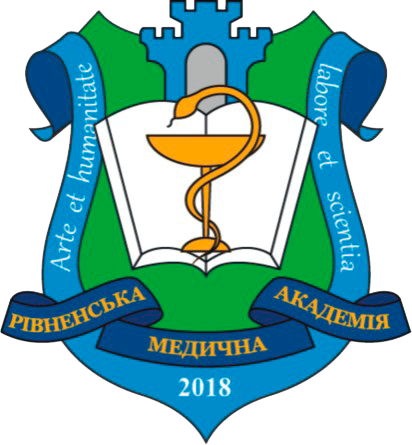FORMATION OF PROFESSIONAL COMPETENCE IN STUDENTS DURING THEIR STUDY AT A MEDICAL UNIVERSITY
DOI:
https://doi.org/10.32782/health-2024.2.31Keywords:
modern education system, formation of professional competences, practical skills, simulation training.Abstract
The article presents the author’s conception in training of the competitive specialists –futures doctors and providing them with the best professional level. Modernization of the educational sector in Ukraine takes place with the regard of Ukraine to join the European educational space. Higher education institutions increasingly pay attention to the quality of education, their adaptability to the labor market, personal orientation to the educational process and its informatization. The aim of the work is to study the professional competence of students of higher medical educational institutions. Future medical specialists must understand the need in constant expand of their cognitive activity, going beyond the curriculum, which is the key to rapid progress in order to become a competent doctor as only the basic knowledge is not sufficient. It is in the medical field that more attention should be paid to the implementation of the qualified approach, since the modern medical education must correspond to the latest international requirements. The communicative competence of nowadays students is considered as one of the adequacy criteria in the labor market, especially in the world of information technologies. This absolutely applies to the profession of a doctor, in which communication is an indicator of professional suitability for social activity. Acquiring of practical skills is a very important basic in the professional medical training of a doctor. Simulation training, in particular, plays a significant role in this process. Simulation training enables to master practical skills first at the pre-clinical stage without involvement of the patients, therefore providing more effective training in the clinic, without stress and with fewer errors. Moreover, simulation training is also convincing for the post-graduate training by using computerized scenarios of clinical cases. For example: improvement of qualifications without disconnection from everyday activities, experience exchange between hospitals, doctors and continuity of professional training. The modern system of higher education should qualify a person to be able to live in an extremely globalized and dynamically changing world, to perceive its variability as an essential component of one’s own way of life.
References
Вороненко Ю.В. Напрями розвитку системи медичної освіти в Україні: погляд у майбутнє. Матеріали XIV Всеукраїнської науково-практичної конференції з міжнародною участю, присвяченої 60-річчю ТДМУ «Сучасні підходи до вищої медичної освіти в Україні». 18–19 травня 2017 року, м. Тернопіль. У двох томах. Том 1. С. 23–25.
Галич О.І. Міжнародні практики як невід’ємна складова професійної підготовки конкурентоспроможного педагога. Матеріали Міжнародної науково-практичної конференції «Освіта і формування конкурентнноспроможності фахівців в умовах євроінтеграції», Мукачево, 26–27 жовтня 2017 р. С. 76–77.
Басараб Т.М., Фенцик О.М. Психологічні умови професійного становлення особистості. Матеріали Міжнародної науково-практичної конференції «Освіта і формування конкурентноспроможності фахівців в умовах євроінтеграції», Мукачево, 26–27 жовтня 2017 р. С. 24–26.
Вороненко Ю.В., Мінцер О.П. Стратегія активації навчального процесу в сучасних системах передавання знань. Матеріали XIV Всеукраїнської науково-практичної конференції з міжнародною участю, присвяченої 60-річчю ТДМУ «Сучасні підходи до вищої медичної освіти в Україні». 18–19 травня 2017 року, м. Тернопіль. У двох томах. Том 1. С. 60–61.
Гуменюк О.М., Гуменюк В. В., Єфремова О.В. Компетентнісний підхід як основа реформування вищої медичної освіти в Україні. Матеріали XIV Всеукраїнської науково-практичної конференції з міжнародною участю, присвяченої 60-річчю ТДМУ «Сучасні підходи до вищої медичної освіти в Україні». 18–19 травня 2017 року, м. Тернопіль. У двох томах. Том 1. С. 100.
Орду К.С. Формування інформаційно-комунікативної компетентності майбутніх сімейних лікарів у професійній підготовці : дис. ... докт. філософії. Одеса, 2021, 318 с.
Каратєєва С.Ю. Сучасна методика практичного навчання студентів з дисципліни «догляд за хворими». Буковинський медичний вісник. Том 21, № 1 (81), 2017. С. 242–243.
Запорожан В.М., Каштальян М.М., Чернецька О.В. Сучасні підходи до освітнього процесу з підготовки високопрофесійних фахівців. Матеріали XIV Всеукраїнської науково-практичної конференції з міжнародною участю, присвяченої 60-річчю ТДМУ «Сучасні підходи до вищої медичної освіти в Україні». 18–19 травня 2017 року, м. Тернопіль. У двох томах. Том 1. С. 19–22.
Артьоменко В.В., Семченко С.С., Єгоренко О.С., Новіков Д.А., Караконстантин Д.Ф., Берлінська Л.І. Симуляційне навчання в медицині: міжнародний та вітчизняний досвід. Одеський медичний журнал. 2015. № 6 (152). С. 67–74.
Grantcharov T, Aggarwal R, Eriksen, JR, Blirup,D, Kristiansen V, Darzi A, Funch- Jensen P. Acomprehensive virtual reality training programfor laparoscopic surgery. Abstracts 13th EAES Congress. Venice, Lido, Italy, Surg Endosc, 2006 Apr; 20(1). Р. 38–40.
Hallikainen H, Väisänen O, Randell T. et al. Teachinganaesthesia induction to medical students:comparison between full-scale simulation andsupervised teaching in the operating theatre. Eur. J.Anaesth. 2009, Т. 26. Р. 101–104.
Бичков О.С., Цівенко О.І., Черкова Н.В., Душик Л.М. Аналіз досвіду симуляційного навчання у формуванні готовності майбутніх лікарів до практичної діяльності. Актуальні проблеми сучасної медицини. 2022, № 9. С. 5–11. DOI: 10.26565/2617- 409X-2022-9-01.





